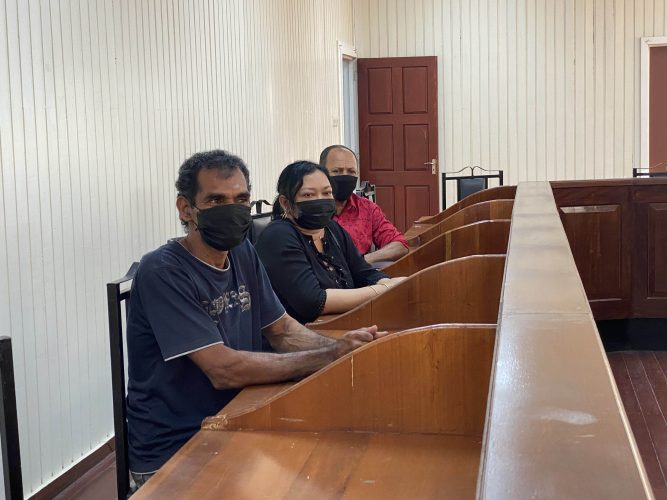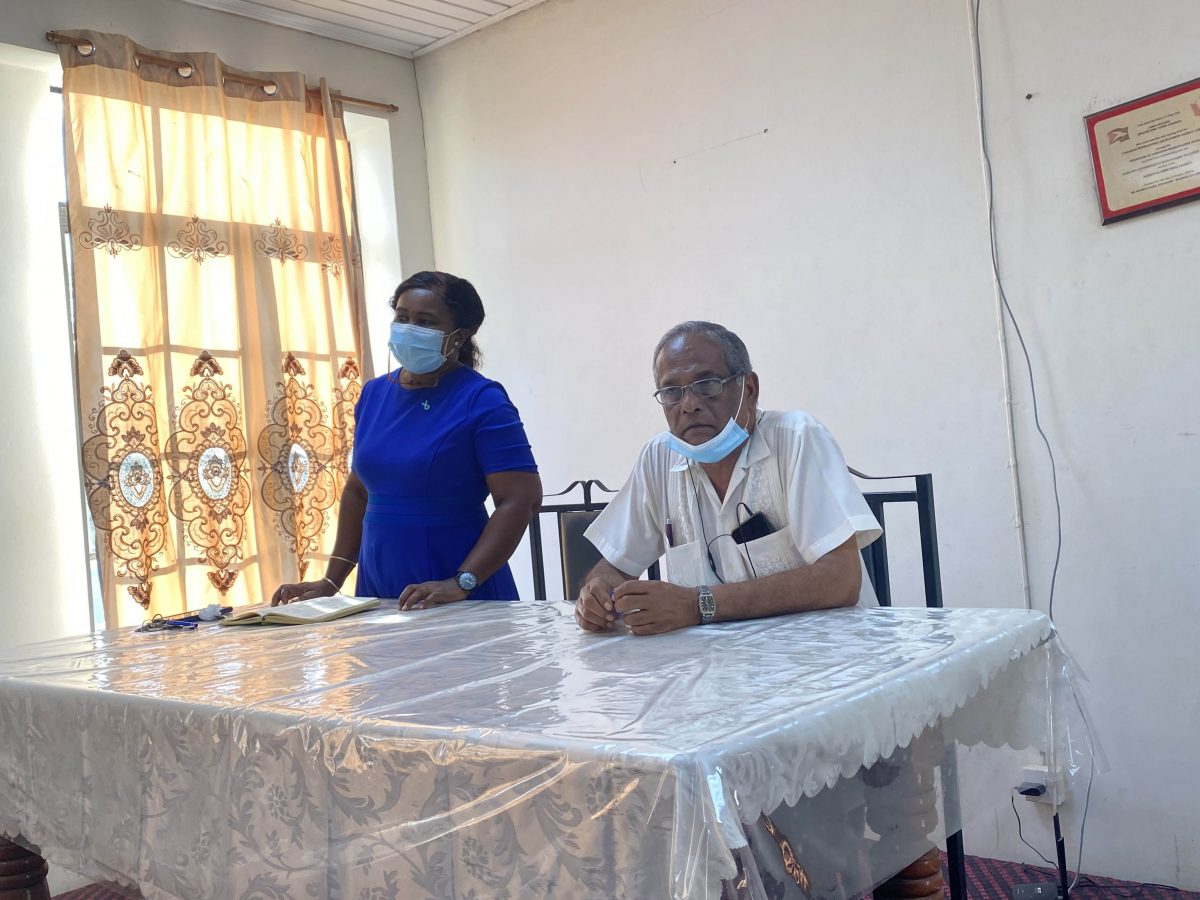Despite making several recommendations against errant police officers, Chairman of the Police Complaints Authority (PCA), retired judge William Ramlall says he continues to be left out of the loop on whether any disciplinary actions are being taken.
Justice Ramlall made the disclosure during a meeting with the public that was held last week in Region Two, where he was on a four-day outreach.
During his discourse with members of the public in the boardroom of the Anna Regina Town Council, Ramlall noted that he has written in his annual reports about the corruption, including acts of dishonesty, fraud, and bribery, that occurs with regularity in the force and he noted that the Commissioner of Police in particular is required to inform him of what has been done in keeping with the recommendations.

The Chairman said that he has recommended that police officers face disciplinary action and to date, he has no idea what has become of those matters. He said he sometimes learns of the outcomes from other policemen that persons were disciplined and said that if it’s true then it would be in violation of the law, which states that the Commissioner of Police is not supposed to discipline anyone without his knowledge.
“The Commissioner of Police cannot impose any penalty on any policeman unless it passes through me first… Not that I can change his decision but I have to give my understanding of the law concerning the disciplining and whatever penalties are there, I either disagree or agree on the penalty. Either way, I have to give reasons before he can impose his penalty so nobody ought to be disciplined without it passing through me,” Ramlall explained.
The retired judge emphasised that he does not know about any policeman being disciplined since to date, nothing has passed through his office as the Chairman of the Police Complaints Authority.
Speaking on the relationship between the police and the public, he opined that in certain cases it is non-existent, while noting that members of the public sometimes get a “horrible” time when they have to deal with the police.
He further urged residents not to succumb to giving bribes to policemen, stating that if one tenders a bribe then one is committing a criminal offence.
Unlawful arrest
The chairman said that police tend to arrest persons then investigate, and he educated those present at the meeting that the law states that an investigation is supposed to be conducted first, then the police shall decide from their investigation whether there is reasonable suspicion based upon the evidence gathered and only then charges can be filed.
“There are still some decent police around but the decent ones are in the minority I am saying this in my annual reports and I have to say this to this Commissioner of Police. Nothing has been done,” Ramlall said.
During his discussion with members of the public, he also touched on the role and functions of the Police Complaints Authority in accordance with the Police Complaints Authority Act, the Police (Discipline) Act, and the impact of constitutional provisions in relation to those functions. He also spoke at length on the various types of misconduct, the responsibilities of the police according to the Police Complaints Authority Act, the requirement of the law for the execution of a lawful stop, and searches with or without a warrant, the requirement of the law for a lawful arrest and detention as well as arrests or and non-arrestable offences.
Meanwhile, the Town Clerk of Anna Regina Dianne Critchlow said that the council was happy that the Chairman of the PCA visited Region Two at an opportune time, when many persons have complaints against the police. Critchlow also thanked those residents that came out to lodge their complaints against the police in Essequibo. Accompanying the Chairman of the PCA were also several investigators from his office.
One resident said that he was happy to meet with the chairman of PCA and called on him and his team to visit Region Two more often. The resident said that policemen in Region Two are arresting persons unlawfully and that persons need to be educated on their rights as citizens.






